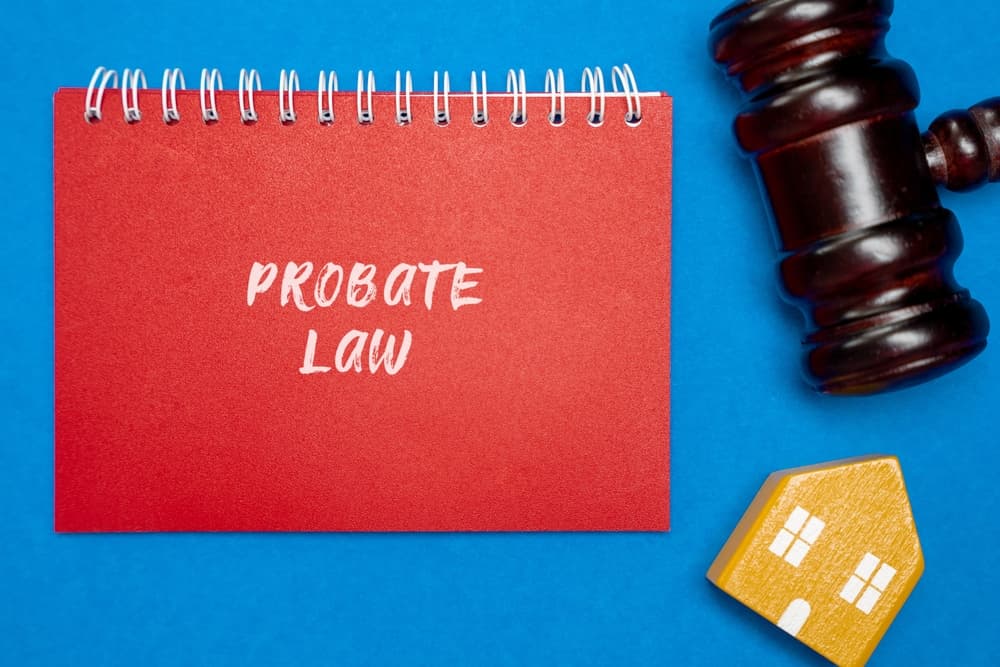Death is a difficult topic to discuss, but Arizona residents must understand what happens when someone dies without a will.
Whether you’re planning your own estate or helping a loved one, clarity on this matter can make an emotional time a little less stressful.
This blog outlines the legal process for Arizona estates with no will and provides insight into how state laws determine the distribution of assets.
We’ll also explore how to create a will, the factors that make it valid, an expanded view of the probate process, and how a will can help manage the deceased’s assets and reduce the need for complicated probate fights during this time.
Reach out to probate & trust services at Lihn Law Firm at (602) 887-5031 to plan ahead for the future and create your will.
What Does It Mean to Die Without a Will?
When someone dies without a legally valid will, they are said to have died intestate.
Without a will, the probate court does not consider the deceased individual’s wishes regarding the distribution of their property, guardianship of minor children, or other critical matters. Instead, it relies on Arizona’s intestacy laws to decide how to divide the deceased individual’s assets.
Dying intestate often creates ambiguity and emotional strain for families. It forces the courts into decision-making roles that could overlook important personal, cultural, or family dynamics. Taking proactive measures to create a will can prevent these complications.
The Role of Probate in Intestacy
The probate process oversees the estate when there is no will. It pays the deceased’s debts, distributes their assets according to Arizona’s intestacy laws, and closes all legal matters.
Probate for larger or more complex estates can delay the beneficiaries’ inheritance. However, the clear instructions in a will can simplify probate.
Arizona’s Intestacy Laws

Arizona intestacy laws dictate who inherits the deceased person’s estate when no will is available. These precise laws follow a specific hierarchy based on familial relationships.
Here’s a breakdown of how assets are typically distributed:
If the deceased was married with no children:
The surviving spouse generally inherits the entire estate.
If the deceased was married with children from that marriage only:
The surviving spouse inherits the entire estate.
If the deceased was married with children from a previous relationship:
This can get more complex. The surviving spouse will inherit half of the deceased’s separate property, while the children of the prior relationship inherit the other half, as well as any separate assets.
If there is no surviving spouse:
The estate is distributed in this order of priority:
- Children
- Parents
- Siblings
- Nieces and nephews
- Other relatives
If there are no living relatives:
When no relatives can be identified, the state of Arizona claims the estate (“escheats to the state”).
The intestacy structure may seem reasonable, but it often conflicts with what the deceased might have wanted. For instance, unmarried partners, close friends, or charities would not receive anything unless explicitly named in a will.
Assets That Fall Outside Intestacy Laws
Not all assets go through the probate or intestacy process. Certain items, like jointly-owned properties or life insurance policies with designated beneficiaries, often bypass the courts and go directly to the intended recipients.
How the Deceased’s Assets Are Handled
Before any inheritance reaches beneficiaries, the deceased’s estate must go through several legal and financial steps:
Debt Settlement
Debts such as mortgages, credit cards, and medical expenses must be paid off. If the estate doesn’t have enough liquid assets to cover these obligations, it may need to sell physical property to satisfy creditors.
Taxes
While Arizona doesn’t have a state inheritance tax, the will may need to address federal estate tax or unpaid income tax obligations.
The Probate Process in Detail

If someone dies without a will, their property likely enters probate. Here’s what probate typically involves:
Filing the Case
Probate begins when someone (usually a close relative) files a petition with the probate court to be appointed as the estate’s administrator. Without a will to name an executor, the court selects an appropriate administrator.
Identifying Assets and Debts
The estate administrator compiles a complete inventory of the deceased’s property and financial accounts while identifying creditors and outstanding debts.
Notifying Parties
Legal notices are sent to creditors, potential heirs, and interested parties, allowing them to come forward with claims against the estate.
Settling the Estate
Debts and taxes are paid. Any disputes, such as challenges to creditor claims or disagreements among heirs, are resolved.
Distributing Remaining Assets
Any remaining assets are divided according to Arizona’s intestacy laws and distributed to rightful heirs.
The entire probate process can take months or even years in complex cases. However, with careful estate planning, including a valid will or trust, you can streamline this process considerably and reduce stress on your loved ones.
How Arizona Intestacy Laws Affect Minor Children
When a parent dies without a will, minor children may face significant impacts that go beyond financial inheritance. Here’s an overview of the specific considerations involved:
Guardianship Decisions
Without a will that explicitly names a guardian, the court must appoint someone to take on this role. While the court aims to act in the child’s best interest, its decision may not align with the deceased parent’s preferences.
- Factors Considered by the Court: Judges evaluate the child’s relationship with potential guardians, emotional needs, and stability. Financial ability to provide for the child is also a key consideration.
- Risks of Not Naming a Guardian: If disagreements arise among family members about who should take custody, the court process may prolong the decision, causing additional stress and uncertainty for the child.
Inheritance Rights for Children
Arizona’s intestacy laws ensure that children will inherit from a parent’s estate if there is no surviving spouse or if the spouse owns only a portion of the estate.
However:
Uneven Distribution Among Siblings: Children typically inherit equal shares, which may create challenges if certain assets, like houses or family businesses, are not easily divisible.
Access to Funds for Minors: Any inheritance left to a minor is usually held in trust or managed by a guardian until the child reaches adulthood (age 18 in Arizona). Without a will, this distribution may not align with the parent’s intent, such as providing gradual access to funds over time.
Other Challenges for Minors in Probate
The probate process can be lengthy and complex, leaving minor children financially vulnerable while decisions are still underway. For example:
Immediate Needs: If access to a parent’s financial assets is delayed through probate, this can leave children—and their guardian—struggling to cover daily expenses.
Dependency on Court-Appointed Guardians or Trustees: Minors may lose a sense of security if an unfamiliar court-appointed party manages their inheritance or estate. Parents who establish a will or trust can avoid this by naming trusted individuals for these roles in advance.
By planning and creating a comprehensive will, parents can avoid leaving these crucial decisions to the courts, ensuring that their children are cared for according to their wishes.
How Arizona’s Community Property Laws Affect Asset Distribution

Arizona’s status as a community property state directly impacts how assets are handled when someone dies without a will. Community property includes assets and income acquired during the marriage and is automatically considered jointly owned by both spouses.
When one spouse dies intestate, the surviving spouse typically inherits all community property outright. However, separate property—assets acquired before the marriage, through inheritance, or as personal gifts—may be divided differently.
If the deceased has children from another relationship, the separate property is split between the spouse and the children, complicating inheritance and financial stability for blended families.
Additionally, disputes may arise if assets like real estate or financial accounts include a mix of community and separate property.
For instance, improvements made to a pre-marriage property using marital funds can make its classification more complex. These scenarios demonstrate the importance of precise estate planning to avoid ambiguity and ensure the surviving spouse’s security.
While community property provides specific protections for spouses, creating a will can give you greater control over the distribution of both community and separate assets. This preparation ensures alignment with your wishes and limits uncertainty or legal disputes for your loved ones.
How to Create a Will
Creating a will is one of the most effective ways to take control of your estate. While the process may seem daunting, breaking it into smaller, actionable steps makes it manageable:
Take Stock of Your Assets and Debts
List all significant possessions, including real estate, vehicles, financial accounts, and personal items. Don’t forget intangible assets like intellectual property or digital accounts.
Consider Beneficiaries
Decide who should inherit each asset and factor in possible contingencies, such as alternate beneficiaries if the primary cannot receive an inheritance.
Appointing Guardians and Executors
If you have minor children, select a trusted guardian to care for them. Likewise, appoint an executor responsible for managing your estate’s distribution.
Draft the Document
Never use basic templates or online services. Working directly with an estate attorney will create a more streamlined and reliable process. Be sure to include specific details to avoid confusion among heirs.
Ensure Proper Signing and Witnessing
Arizona requires wills to be signed by the testator and two witnesses who aren’t beneficiaries. This ensures its validity.
Store Your Will Safely
Choose a secure location, like a safe or with an attorney, and make sure your executor knows how to access it.
Review and Update Periodically
Life changes like marriage, divorce, the birth of children, or the acquisition of substantial assets may require updates to your will.
What Makes a Will Legally Valid in Arizona?
To be valid in Arizona, a will must meet these criteria:
- The testator (person creating the will) must be at least 18 years old and of sound mind.
- The testator must sign the will voluntarily without undue influence or coercion.
- It must be written and witnessed by two individuals who are not beneficiaries.
Following these standards ensures your will is legally binding and less prone to being contested in court.
Frequently Asked Questions (FAQs)
If I have an asset with a previously named beneficiary, does that fall into intestacy?
No, assets with a previously named beneficiary, such as life insurance policies, trust funds, payable-on-death accounts, or retirement accounts, are not subject to intestacy laws. These assets transfer directly to the named beneficiary outside the probate process.
Keep beneficiary designations up-to-date to ensure they reflect your intentions.
Can an unmarried partner inherit under Arizona intestacy laws?
No, Arizona’s intestacy laws do not recognize unmarried partners, no matter how long you’ve been together.
If you want your partner to inherit your assets, you must create a will or other estate planning documents to specify this. Without these, your estate will go to your closest legal relatives, which could exclude your partner entirely.
Take Control of Your Estate Planning with Lihn Law Firm
Planning for the future is one of the most important steps to protect your loved ones and ensure your wishes are honored. Drafting a will isn’t just about dividing assets—it’s about offering peace of mind.
A will minimizes family conflict and protects loved ones from undue financial and legal stress.
By taking action now, you can simplify the probate process, choose how your assets are distributed, and ensure your values live on through your legacy. It’s a small effort today for a significant impact tomorrow.
Lihn Law Firm offers clarity and support as you craft a personalized estate plan. Our experienced attorneys will guide you through the process, helping you address complex issues like guardianship, community property, and inheritance rights. You can simplify the probate process, safeguard your family’s future, and leave a lasting legacy by taking action now.
Don’t wait to make these critical decisions. Contact Lihn Law Firm today at (602) 887-5031 to secure peace of mind for you and your loved ones.






